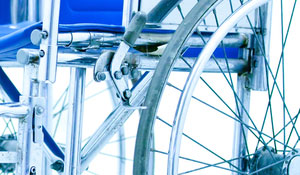As I get older, New Year’s Day has taken on a new and special significance. What used to be an excuse for a party has become an occasion for reflection, renewal, and improvement. And it seems as I get older, there’s more to reflect on and plenty of room for improvement!
HQAA Blog
Topics: Employee Training, HIPAA, Personnel Files, Quality Improvement, Billing, Compliance, Materials Management, Warehouse, Disaster Preparedness, Emergencies, Infection Control
For those of us that live in parts of the country with cold, rainy, snowy, and overcast winter seasons, spring is a great time and maybe the most beautiful part of the year. It is a time of rebirth as the grass becomes green again and leaves on trees reappear and flowers and budding plants begin to bloom. I don’t know why spring became associated with “spring cleaning”, but every year as the weather improves, many of us do a deep and thorough annual cleaning along with a reorganization and thinning out of our “stuff”.
Topics: Materials Management, Showroom, Retail, Delivery, Warehouse, Equipment
I imagine it’s the same in other industries—December in DME can be a hectic, scatterbrained race to the finish. (“The finish” in this case being the end of the year). Financially speaking, it’s a time to try to maximize earnings and pad the bottom line, wrapping up billing cycles and completing tasks to prepare financially for the new year. Patient/customers that have met their deductible are anxious trying to consume healthcare before a new deductible cycle begins. December 31st is the end of a quarter, the end of a month, and the end of the year and there’s two major holidays –Christmas and New Year to work around. Staff wants to spend time with their families. And of course, company holiday parties abound.
Topics: Employee Training, Personnel Files, Billing, HQAA Accreditation, Process Improvement, Materials Management, Showroom, Delivery, Warehouse, Customer Service, Disaster Preparedness, Emergencies, Business Practices, Infection Control, DMEPOS
2023. We’re twenty-three years into the new millennium. Medicare is close to sixty years old. Time is marching on quickly—relentlessly, some would say. New Year’s Eve parties continue the great tradition of partying into the wee hours, ringing in the New Year with a toast, and getting up January 1st with a renewed optimism, a positive outlook on life, and a list of resolutions to improve. You might say it is a great example of continuous quality improvement.
Topics: Employee Training, Security, Quality Improvement, Renewing Accreditation, Compliance, Process Improvement, Materials Management, Showroom, Retail, Warehouse, Work, Disaster Preparedness, Business Practices, Marketing, Equipment
Because of the nature of our work, the durable medical equipment industry did not close our doors, shelter in place, or shut down for the Covid-19 Pandemic. We did, however, change the way we do business in many ways. Some of these changes will undoubtedly get back to normal as our nation and the world climb out of the pandemic. And of course, many of these changes will become the “new normal” and are destined to remain changed forever. At the time this blog article is being written, HQAA is carefully monitoring the industry as well as law and regulation and CMS policy to determine how accreditation surveys will be performed in both the short and long term. More on that in the weeks to come.
Topics: Employee Training, HIPAA, HME Accreditation Requirements, Patient File Requirements, Materials Management, Showroom, Retail, Delivery, Oxygen, Warehouse, Customer Service, Business Practices, Marketing, Infection Control
A phrase we’re hearing a lot through this crisis and pandemic is “new normal”. As in, there’s a new normal out there that involves social distancing, wearing masks, working from home, restaurants and non-essential businesses closed or working limited hours, and on and on and on. Every person has had some aspect of their life changed in sometimes small, sometimes profound ways. Of course, this applies to medical equipment providers as much as anyone else.
Topics: Employee Training, Clinical Practice Guidelines, Materials Management, Physicians, Avoiding Deficiencies, Showroom, Retail, Delivery, Warehouse, Customer Service, Marketing, Infection Control
On a recent survey, I was chatting with the staff member who was responsible for cleaning and disinfecting the rental medical equipment. This particular organization had traditional DME patients, but also serviced a Hospice contract, so the equipment flowed mightily through the warehouse’s clean, dirty, and waiting to be repaired areas. As I was asking him about the cleaners and disinfectants he used, I noticed a poster above his workbench. It was one of those pithy and ubiquitous “keep calm” sayings: “KEEP CALM & MAINTAIN CLEANLINESS.” He smiled and shrugged when he saw me eyeing the poster. This staff member took his responsibility very seriously and was doing an excellent job. His paperwork and technique were both very good, his workspace was orderly and clean, and he understood the underlying reasons it was so important to clean equipment properly for staff safety as well as patient safety.
Topics: Quality Standards, HME Accreditation Requirements, Materials Management, Avoiding Deficiencies
Many in the home medical equipment industry equate policy manuals to their accreditation inspections. And of course, these bulky tomes are certainly a large part of the accreditation and survey experience for every DME. Policy manuals serve as the road map for how work gets done within an organization, a set of rules for the organization, and the document that defines the structure, function, and philosophy of the organization. Let’s look at what a policy manual should contain and how it impacts not only accreditation, but also the overall day-to-day operation of an organization.
Topics: Employee Training, HIPAA, Security, Personnel Files, Quality Improvement, Billing, Renewing Accreditation, Quality Standards, HQAA Accreditation, HME Accreditation Requirements, Patient File Requirements, Compliance, Patient Privacy, Clinical Practice Guidelines, Materials Management, Avoiding Deficiencies, CMS, Complaint Process, Quality Care, Showroom, Retail, Delivery, Clinical Respiratory Services, Oxygen, Warehouse, Safety Officer, Competence, Customer Service, Disaster Preparedness, Emergencies, Business Practices, Marketing
Topics: Quality, Employee Training, HIPAA, Personnel Files, Quality Improvement, Billing, Quality Standards, Patient File Requirements, Compliance, Patient Privacy, Process Improvement, Materials Management, Avoiding Deficiencies, Showroom, Retail, Delivery, Warehouse, Safety Officer
Almost everywhere we look today, we see superheroes. With Halloween nipping at our heels, the stores are advertising how we can dress up like the Hulk, or Catwoman, or Captain America. Heroes seems to have a pretty high profile right now in movies, books, video games and marketers tell us all the time that we can be just like them.
Topics: Security, Materials Management, Retail, Warehouse, Safety Officer











